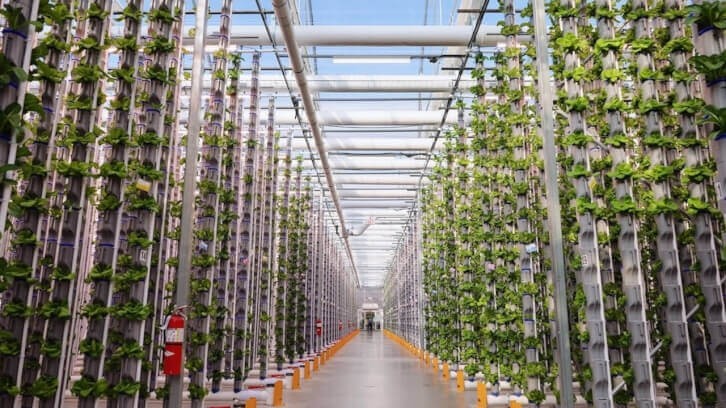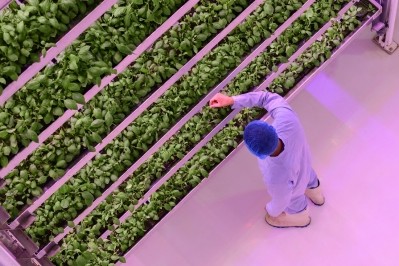Eden Green’s herb program provides a cost-effective solution to international imports

Through its patented vertical greenhouse system—a hybrid between indoor greenhouses and vertical farms—Eden Green has successfully introduced 10 varieties of herbs for distribution with its partner, Robinson Fresh, in addition to its existing leafy greens portfolio. Both the herbs and leafy greens are labeled under either Robinson Fresh or white labeled for its food service and retail clients.
Badrina highlighted the company’s flexibility in growing the top 10 herb varieties—basil, cilantro, chives, dill, mint, oregano, parsley, rosemary, thyme and sage—while reducing logistics costs by building its vertical greenhouses near Robinson Fresh’s distribution centers.
This strategic placement allows for the herbs’ delivery to retail and foodservice customers within 48 hours, a speed that Badrina described as “unprecedented.”
Due to the high demand for its products, Eden Green plans to expand its production by adding more vertical farms in Cleburne.
“We have one [vertical farm] that is commercially producing. We have got one which is our R&D facility … and converting a portion of that into our retail commercial production. And we have two more on the way,” he elaborated.
Driving down costs, driving up consistency
The streamlined production and distribution of herb varieties is unique to Eden Green. Typically, sourcing a suite of herbs requires multiple distributors and international importation, driving up costs while risking quality for retailers and food service providers, Badrina explained.
Provenance is another selling point for its customers.
“The fact that they know where it’s coming from, that it’s local and that we can ship it all from one place is very appealing because it drives down cost for them on logistics and distribution, and at the same time it drives up consistency for their customers,” Badrina emphasized.
He added that basil, in particular, is difficult to source from a logistics perspective due to its delicate composition.
“Almost all of the basil that is consumed in the US is airfreighted either from Hawaii or south of the border. Because basil is so delicate, and the cold chain for basil is about 55 degrees; whereas the cold chain for almost anything else is 39 degrees. If you’re going to ship basil, you have to do it in a very specialized manner,” he said.
Badrina continued, “Specialized plus airfreight equals a lot of cost. When most of these distributors buy in bulk, they want all of their herbs to come in at the same time. So they aggregate all the rest of the herbs that maybe some are grown domestically and others internationally, so they combine those … with the basil … so then they just end up air freighting all the rest of the herbs.”
Eden Green’s production and distribution method for the herb program has allowed the company to maintain its costs, and adjusting ratios of leafy greens versus herbs, Badrina said.
“We haven’t seen a significant increase in cost of goods sold or resource constrained by growing herbs. Because we use so much sunlight and we have our complimentary patent pending mobile light system, it really has adapted well to growing herbs. It is just as efficient as growing leafy greens,” he added.













